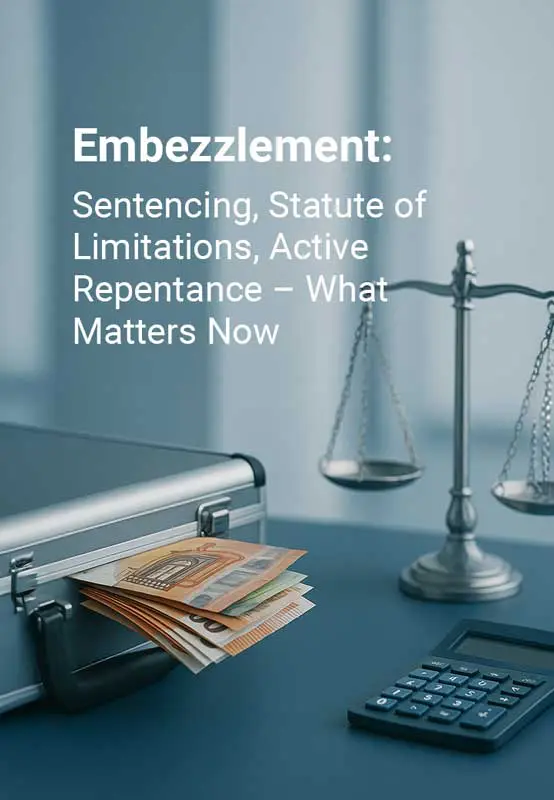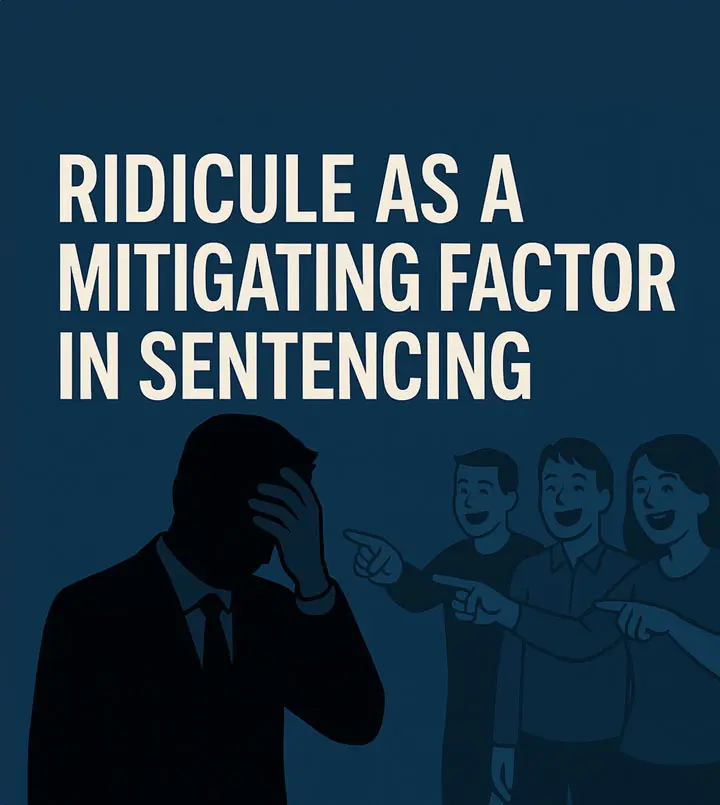In 2024, around 534.000 criminal charges were filed in Austria. Just under 5% of these resulted in final convictions. But what happened to the remaining 95% of criminal charges? The majority of them were terminated by diversion. This refers to the special option of ‘getting criminal proceedings behind you’ without a conviction – i.e. without being sentenced by a court and thus without a criminal record. Instead of a court conviction, conditions or services are imposed that can be beneficial for both the accused and the victim.
What is diversion and when is it considered?
Diversion means criminal proceedings are discontinued by the public prosecutor’s office or the court without the accused being sentenced. In criminal law, this is also referred to as withdrawal of prosecution. Instead, certain obligations are imposed on the accused. For example, the accused may pay a fine or perform community service, or make amends to the victim by means of restitution. Finally, there is also the possibility that the proceedings will be discontinued for a probationary period of 1-2 years without any other obligations being imposed. The type of diversion measure is determined by the public prosecutor’s office or the court, and the accused has to agree to it.
The possibility of obtaining a diversionary settlement is subject to certain basic conditions. In principle, diversion can only be applied to minor to moderate offences with a maximum sentence of 5 years. Diversion measures are regularly applied in cases of petty theft, fraud, (negligent) bodily harm, damage to property or traffic offences.
In addition, the accused must not be guilty of serious offences, and there must be no specific or general preventive reasons for punishing the accused. This means that serious violent or sexual offences and offences resulting in death are excluded from diversion (exception: juvenile criminal law). Finally, diversion also depends on the attitude of the accused, who must be willing to take responsibility for the offence with which they are charged. A confession is not necessary.
Procedure of diversion
If the requirements are met, the public prosecutor’s office or the court offers the accused diversion. The accused can also apply for diversion through their defence counsel. In practice, the defence counsel advises the accused on the possibilities of diversion and conducts a diversion discussion with the public prosecutor’s office or the court. In many cases, diversion is an important defence strategy.
The accused may agree to diversion and the specific diversion measure, but may also reject the diversion measure offered. In addition, they may apply for diversion at any time during criminal proceedings. If the conditions are met, the public prosecutor’s office or the court must proceed with diversion; otherwise, any criminal judgement handed down will be null and void and may be challenged in the second instance.
What happens after the Diversion?
Once the appropriate diversion measure has been determined, the public prosecutor’s office provisionally withdraws from prosecution or the court discontinues the criminal proceedings by order, and the accused must fulfil the obligations imposed on them (e.g. payment of a fine within a certain period). Once the deadline has passed, the public prosecutor’s office withdraws from the prosecution and the criminal proceedings are finally concluded. The accused has no criminal record and no entry is made in the criminal register. The diversion is only stored in the system for 10 years for internal purposes.
The main advantages of diversion are the rapid conclusion of criminal proceedings and avoidance of a conviction.
If diversion fails because the accused fails to comply with their obligations or reoffends during the probationary period, the provisionally suspended criminal proceedings may be resumed. In this case, a conviction may follow.
What does a Diversion cost?
The accused has to pay a flat-rate contribution of up to € 250 for any form of diversionary settlement (§ 388 of the Code of Criminal Procedure). However, this may be waived in cases of low income if the livelihood of the accused and their family is at risk or if it would jeopardise compensation for damages or the fulfilment of restitution.
In addition to the court costs, there may also be costs for legal defence. In criminal proceedings that end in diversion, high criminal defence costs can often be avoided, as there are usually no costly main proceedings or appeals.
Conclusion
Diversion offers many advantages and an opportunity to take responsibility, make amends and at the same time avoid the negative consequences of a conviction – all within the framework of a swift and cost-effective procedure. It is a popular and fair alternative to traditional criminal proceedings and is usually in the interests of both the accused and the victim.
We would be happy to advise you on diversion and support you in achieving a diversionary settlement of your criminal proceedings.









